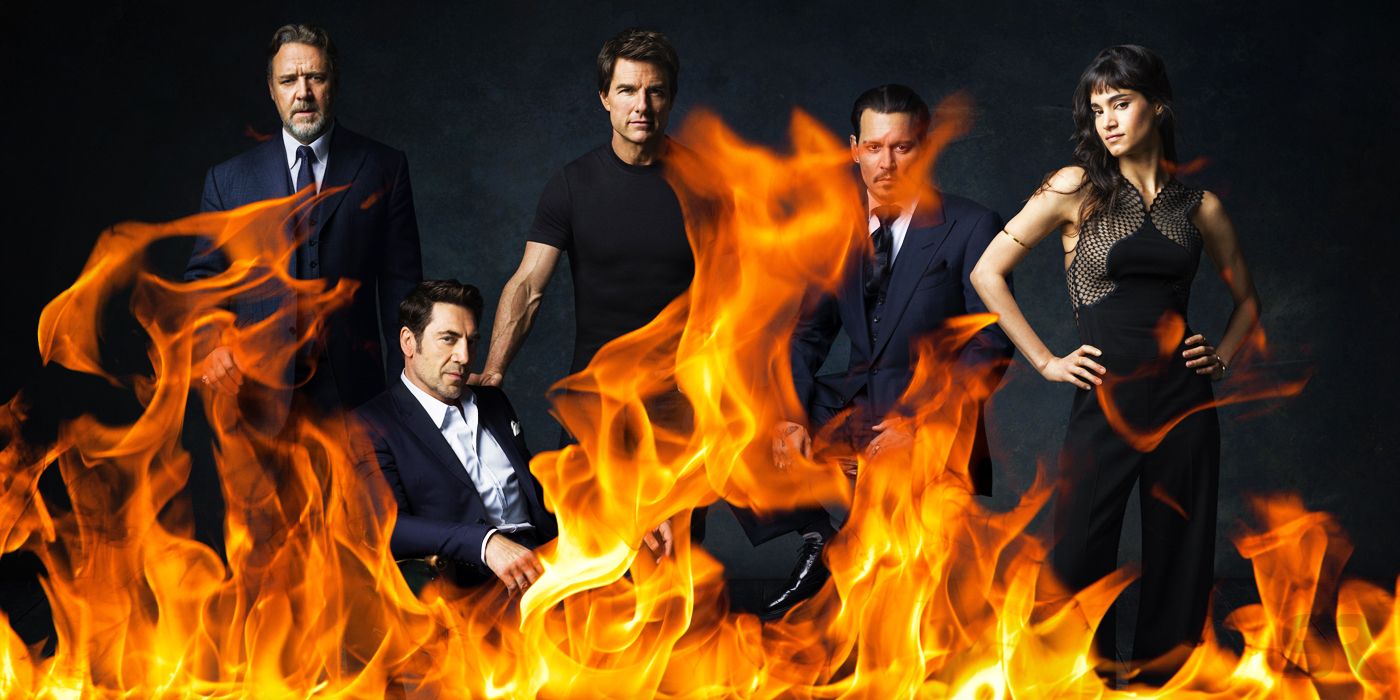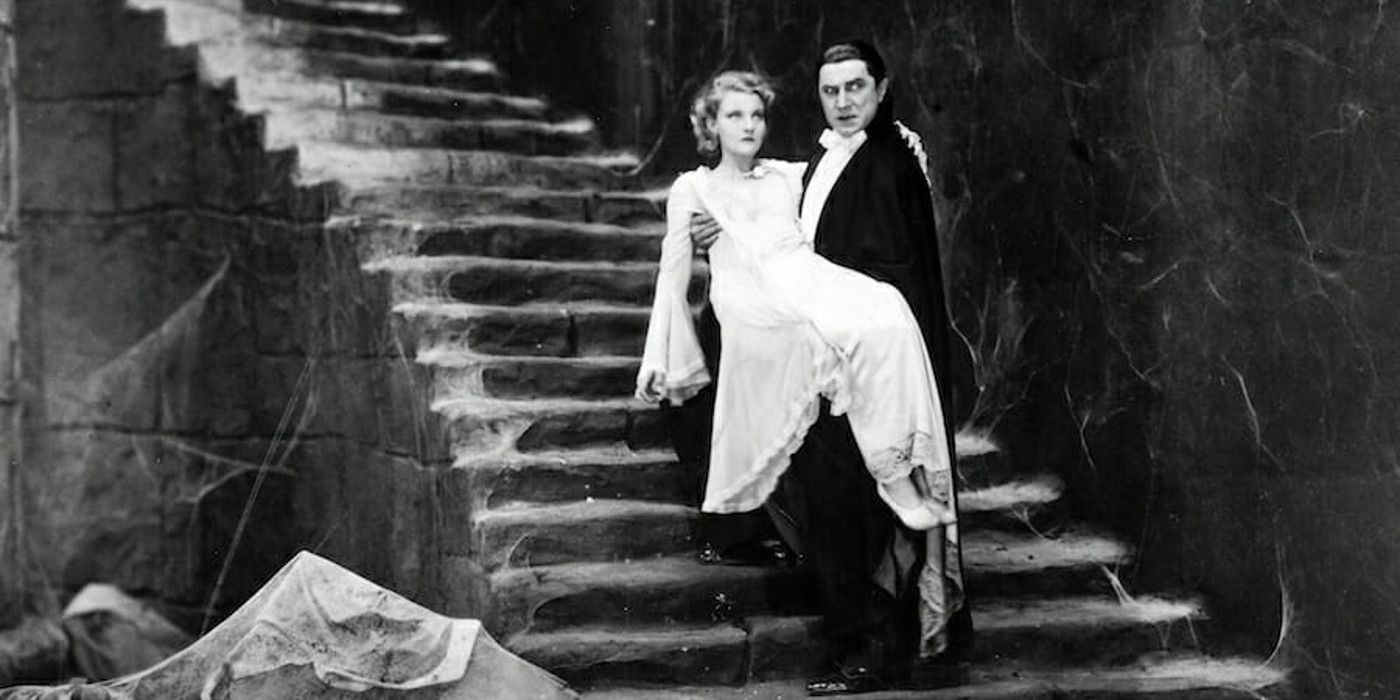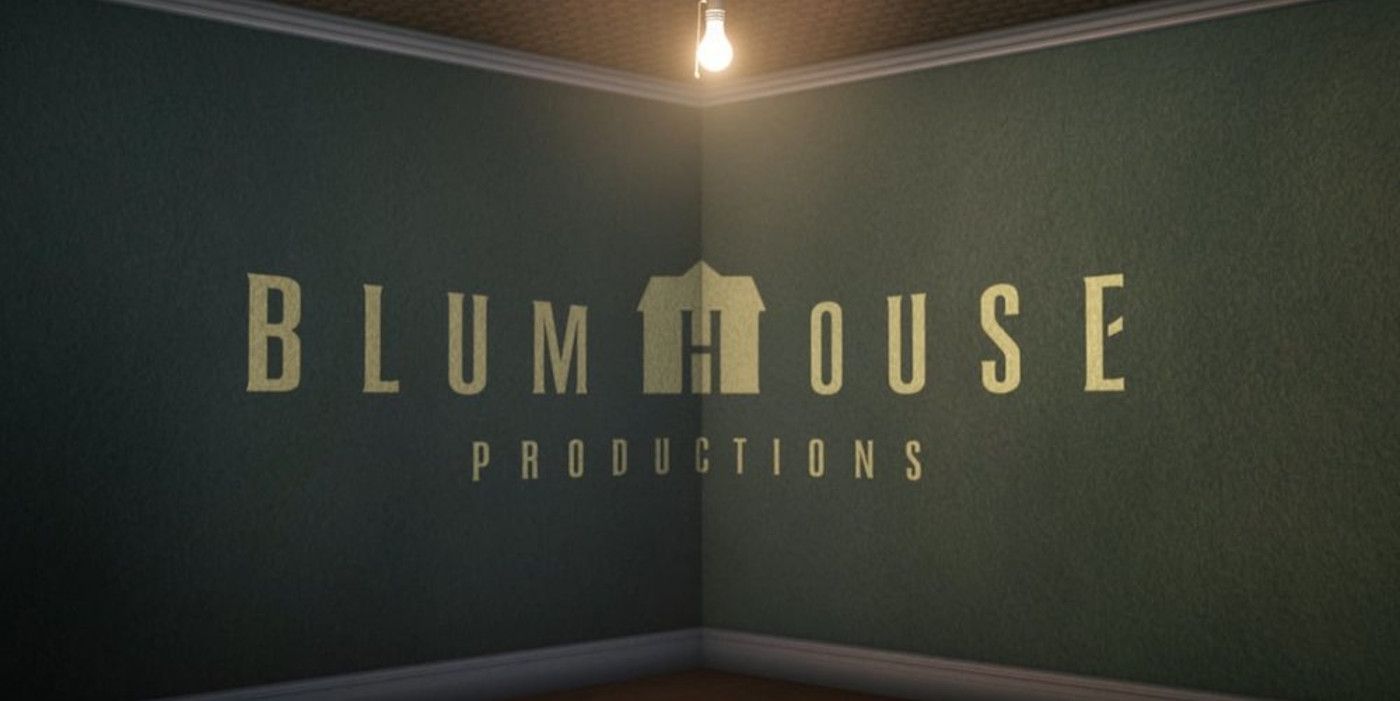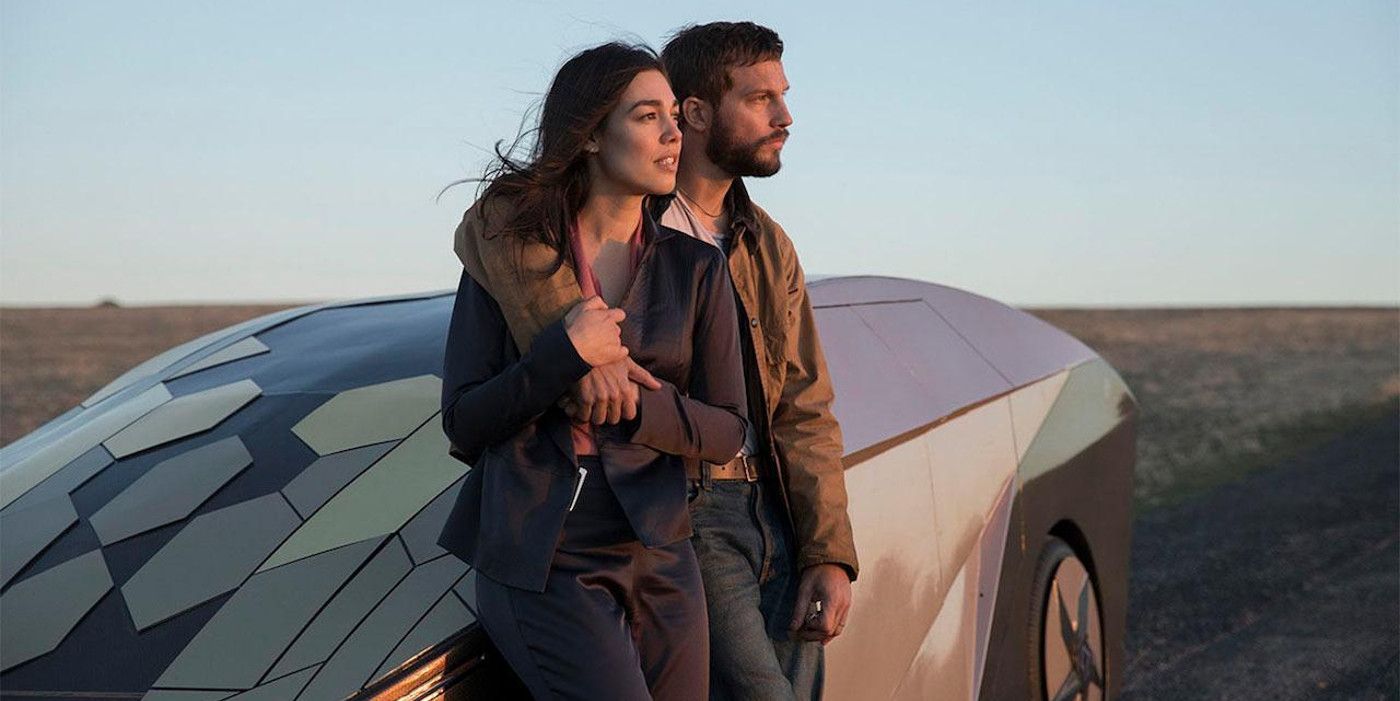The Dark Universe is being resurrected, this time to be overseen by Blumhouse Productions with a more tactile, better-suited approach than that of the previous incarnation. The franchise, a contemporary version of the classic Universal Monsters, was launched by Universal as a blockbuster cinematic universe in 2017. However, when the Tom Cruise-fronted first installment The Mummy bombed at the box office, serious doubts were raised over the viability of the property that culminated in the whole idea being shelved.
Enter Blumhouse, the predominantly horror-based production house, who've spent the last decade establishing themselves as a trustworthy, profitable source of horror cinema and franchising. Jason Blum, the studio head, has been vocal about his desire to tackle the Universal Monsters, and now he's been given his chance.
Related: The Best Horror Movies On Netflix
If anyone can make the Dark Universe a success, it's Blumhouse. From The Purge and Insidious through to Happy Death Day and Get Out and many more, the studio knows how to make and sell a good scare. Their films are well-produced and approachable, and often come from more offbeat filmmakers, much like Leigh Whannell, who'll be making his second directorial turn to launch the universe with The Invisible Man. The Dark Universe was a great idea that was sunk by terrible execution, and Blumhouse is the perfect place to bring it back to life.
- This Page: The Dark Universe Isn't A Bad Idea
- Page 2: Why Blumhouse's Dark Universe Will Work
Why The Mummy & The First Dark Universe Failed
Universal will living down their recent botched attempt to re-do the Universal Monsters for a long time. From the Dark Universe branding, to the over-zealously star-studded first line of movies to the release and subsequent lackluster box office of 2017's The Mummy, the studio made just about every mistake feasible in launching the new universe.
Universal were on the wrong foot with the idea both practically and philosophically. Going by The Mummy, and the hiring of big-name stars like Tom Cruise, Johnny Depp and (reportedly) Angelina Jolie, these were intended to be special-effects-driven action blockbusters, the antithesis of the horror genre and indeed the classic movies they're derived from. Gone are the practical effects and psychology of the original epics, the commanding performances from frequent monster-ers Bela Lugosi and Boris Karloff and masterful direction from the likes of James Whale, Tod Browning or Karl Freund. In their place was forgettable, meandering, CGI-heavy storytelling that had a very unearned smugness to it.
Read More: The Mummy Shows How NOT To Start A Shared Universe
Certainly there were some interesting ideas, but on the whole The Mummy mostly felt like a supernatural Mission: Impossible knock-off they convinced Cruise to sign onto because it involved a death-defying stunt he'd not yet tried and a lot of running. And the audience response was suitably limp, being un-amused with the shallow franchising and even less enthused with the idea of seeing similar treatment in the Jolie-fronted The Bride of Frankenstein and Depp-starring The Invisible Man, among others. Gradually Universal were forced to close up shop, cutting their losses while they had the chance.
Why The Universal Monsters Can Work (If Done Correctly)
It bears repeating that the problem with the Dark Universe was the execution and not the idea. The Universal Monsters are a timeless, iconic part of cinema history. There is always interest in new riffs on these creations – Guillermo Del Toro's The Shape of Water becoming an Oscar-winning hit shows that - and it's fair to say people have an undying affinity for these stories. Their literary roots are well-ingrained in our cultural psyche. New iterations just need to be well told, in ways that challenge our perception of what makes a “monster” and why we're so fascinated with things that go bump in the night, just like the Universal movies of old.
There's a whole generation of writers, directors and visionaries, like Del Toro, who are capable of making not only a great monster flick but a defining chapter in the legacy of these archetypes. Alex Garland, Jennifer Kent, Jen and Sylvia Soska, Boots Riley, Mike Flanagan – the list of potentially exciting candidates that could join the already-signed-on Leigh Whannell is long. Some have already been in the territory, The Shape of Water being a spiritual successor to The Creature from the Black Lagoon and Garland's Ex Machina channeling Frankenstein through a hard sci-fi lens. The talent and the desire is there, they just need to be filtered through an appropriate creative initiative.
Page 2 of 2: Why Blumhouse's Dark Universe Will Work
Blumhouse Are Perfect For the Dark Universe
From the $200 million return on a $30,000 budget the studio managed with the first Paranormal Activity, Blumhouse developed into one of the greatest horror outlets of modern cinema. Continually producing work that is well-made, that sells and kickstarts lucrative properties and careers, Jason Blum is the man to work with for any fresh-faced genre director. In fact, with Jordan Peele's Best Original Screenplay Oscar for Get Out, there's not a lot of Hollywood credentials the studio has left to earn, except maybe make a cinematic universe.
Related: Why Blumhouse is the Perfect Studio For A New Spawn Movie
Blumhouse know the market, they know the genre, they pick their projects incredibly well, and everything is ran incredibly economically. Budgets are a fraction of the blockbusters they typically rival at the box office (no movie has gone about 10% of The Mummy's reported $195 million). What's more Blumhouse have always championed on-demand and streaming services, unafraid to release things there that might not compete at the box office, using the big hits to provide a cushion to works like last year's Cam, which went to Netflix. They have the luxury of a low entry fee and further not needing everything to turn a profit, and are paying it forward to their creators.
On a consumer side, Blumhouse don't deal in over-the-top star-driven committee-designed blockbusters. They make films that are practical, with genuine creative visions at their core. The kind of open-minded studio culture the Universal Monsters need to dust off the cobwebs and shamble forth.
Leigh Whannell's Invisible Man Is The Perfect Start To Universal Monsters
Already we're off to a strong start with well-traveled terror-maker Leigh Whannell making the first chapter for Dark Universe 2.0 – an adaptation of The Invisible Man. Whannell's filmography as a writer is impressive, having written the first three Saw films and all four installments of Insidious, the third of which he also directed. But it's 2018's Upgrade that makes him such an exciting prospect.
His first time writing and directing a completely original picture, Upgrade is a bleak-yet-humorous take on humanity's intertwining with technology. Between the robotically-smooth action cinematography and some unnervingly real-feeling body horror, it's clear Leigh has some clever ideas up his sleeve. He's someone who can translate deep notions into screenplays audiences can digest, and a visual storyteller with an eye for distinctive shots and memorable design.
Read More: Upgrade Ending Explained: What REALLY Happened With STEM
Him working on a version of The Invisible Man, one of the old school cinematic ghouls that hasn't been oversaturated, is as good a way for a new era of Universal Monsters to start as any. The last major production of The Invisible Man was Paul Verhoeven's Hollow Man in 2000. In Hollywood time, 20 years between adaptions is a lifetime. For many audience members, this will be their first exposure to H. G. Wells' 1897 tale, which allows Whannell a lot of scope for expectations of tone and narrative, and means Blumhouse aren't tasked with advertising a film half the prospective viewers feel like they saw only recently.
Try as they might over the years, Universal has continually failed to recapture the magic of the original Universal Monsters. There have been great attempts, sure, but nothing with quite the same fervor and gravitas. Coming up on 90 years since Bela Lugosi's Dracula and Boris Karloff's Frankenstein defined horror cinema for the ages, Blumhouse is about to conjure a new Dark Universe, and bring with it a darkness worth celebrating.




